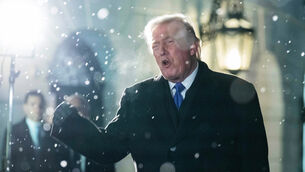UK public feel BBC was hard done by - poll
With the BBC reeling from the resignations of its chairman and director general in the space of two days, an opinion poll today suggested the UK public feel the corporation was hard done by in the Hutton Report.
Fewer than one in four people quizzed for The Guardian felt Gavyn Davies and Greg Dyke needed to resign after Lord Hutton’s scathing condemnation of the BBC’s editorial and managerial standards on Wednesday.














